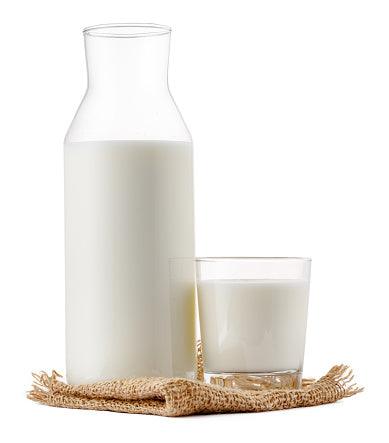As a parent, you're likely to encounter a multitude of questions about your baby's nutrition as they grow.
One such question that often arises is, "When can my baby start drinking cow's milk?" The transition from breast milk or formula to cow's milk is a significant milestone in your baby's development, and it's essential to get it right. In this article, we will explore this important topic, providing you with insights, guidelines, and answers to your most pressing questions.
Understanding the Timeline
The transition to cow's milk should be approached with careful timing and consideration. Here's a breakdown of when it's appropriate to introduce cow's milk to your baby's diet:
Around the Age of 1 YearPediatricians commonly recommend introducing cow's milk when your baby reaches their first birthday. Before this milestone, it's crucial to rely on breast milk or infant formula as the primary source of nutrition. The reason behind this timing lies in the development of your baby's digestive system.
Gradual Transition
When your baby turns 1, you can initiate the transition from breast milk or formula to cow's milk. However, it's essential to make this change gradual. Begin by mixing cow's milk with your baby's regular milk, and over the course of about a week, increase the ratio of cow's milk while decreasing the previous source. This gradual shift allows your baby's digestive system to adapt comfortably.
Choosing the Right Milk
Whole Milk for the First Year
For the initial transition to cow's milk, it's essential to use whole milk. Whole milk provides the necessary fats crucial for your baby's brain development during the first year. The healthy fats in whole milk support cognitive growth, making it an important choice for your baby's nutrition.
2% Milk After the First Year
After your baby's first birthday, you can consult with your pediatrician to determine whether to switch to reduced-fat (2%) milk if there are concerns about your child's weight. Again, your pediatrician's guidance is invaluable in making this decision.
Monitoring and Adapting
Individual Needs
Every baby is unique, and their transition to cow's milk will vary. Some babies may readily accept cow's milk, while others may take more time. Pay attention to your baby's cues and preferences. Ensure they continue to receive the necessary nutrition from solid foods as well.
Allergies and Reactions
When introducing cow's milk, be vigilant for any signs of allergies or adverse reactions. These could include rashes, hives, diarrhea, vomiting, or other unusual symptoms. If you notice any such signs, consult your pediatrician immediately.
The Transition to Cups
Around the age of 1, it's also an opportune time to start transitioning your baby from bottles to cups. Encouraging your baby to drink milk from a sippy cup or regular cup instead of a bottle helps promote proper dental development.
Consulting Your Pediatrician
Ultimately, the timing and specifics of transitioning your baby to cow's milk should be discussed with your pediatrician. They can provide personalized guidance tailored to your baby's unique needs and ensure that the transition is smooth and healthy.
The transition from breast milk or formula to cow's milk is a significant step in your baby's development.
Timing, the choice of milk, and individual adaptation are key factors in making this transition successful.












